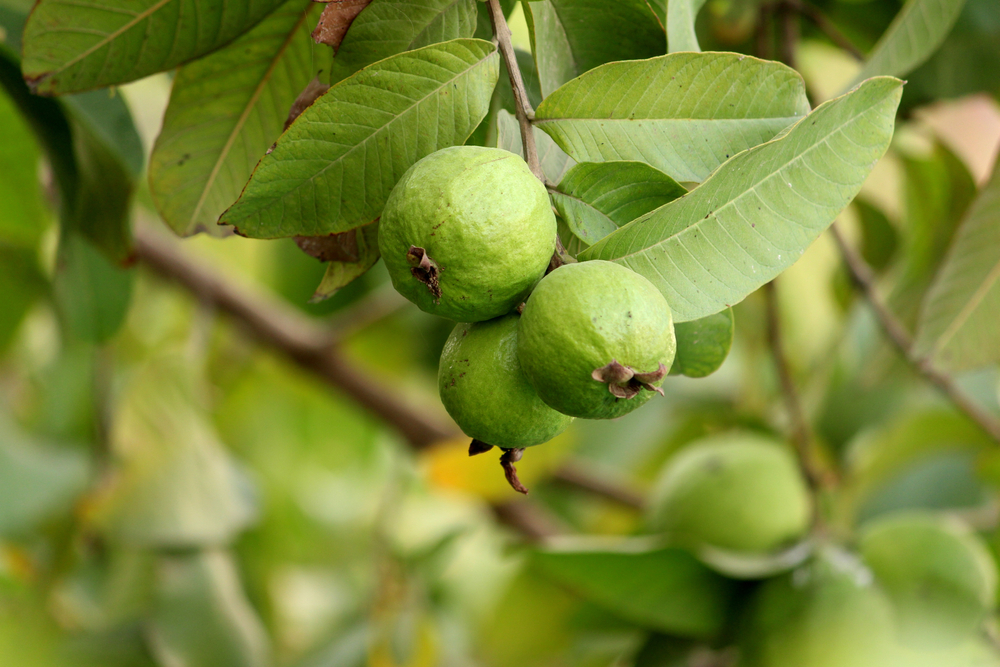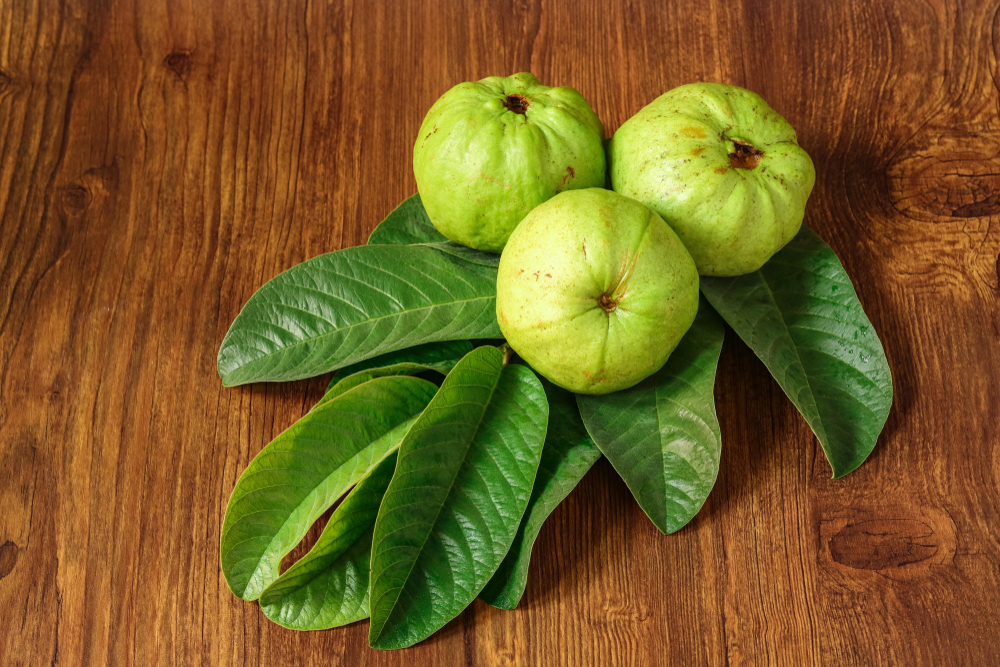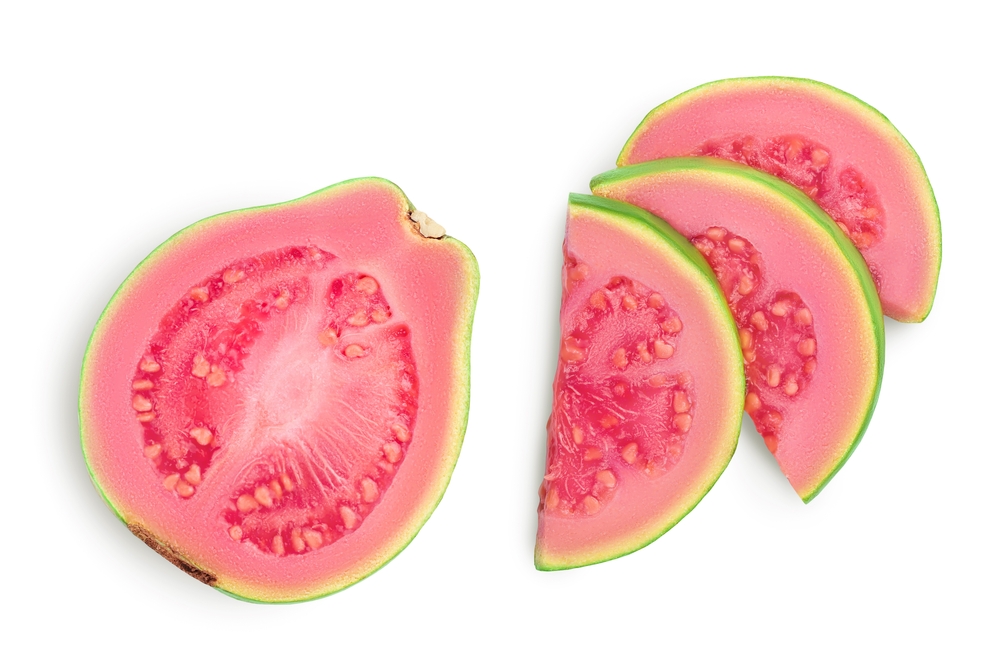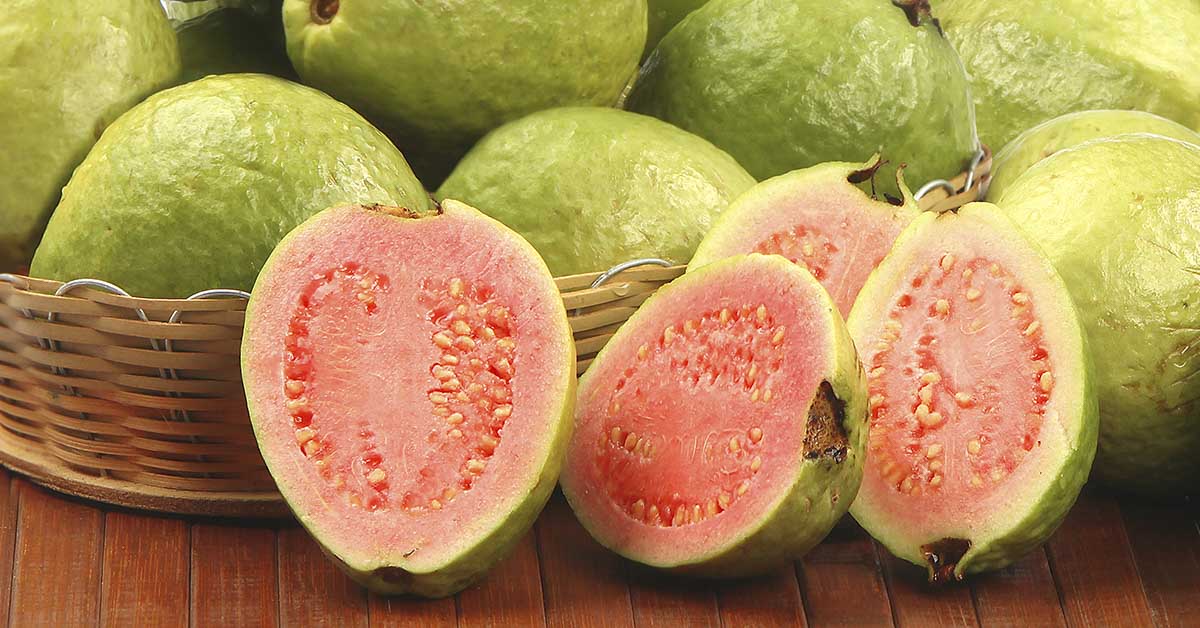Are you familiar with the guava fruit? You know, the tropical fruit that’s green on the outside and pink on the inside? Originating from Central America, this tasty fruit packs a serious nutritional punch. The next time you find yourself in a country that grows them, these are all the reasons why you should enjoy your fill of guava before you head home.
Guava: A Nutritional Powerhouse

Guava is a green-skinned fruit with pink flesh and edible seeds. It grows in Mexico, Central America, the Caribbean, South America, and some southern United States. This fruit is an excellent addition to a healthy diet. On the glycemic index, it sits between a 12 and a 24. This is on the lower end as far as fruit goes and it is considered to be a low-GI food. It also has plenty of fiber to help maintain a healthy gastrointestinal tract, and is a reasonably high-protein fruit, with four grams per serving. These aren’t even the biggest reasons why you should start eating more guava. (1)
Read More: What Those Numbers on Fruit Stickers Really Mean
1. Skin Health

Concerned about your skin as you age? Nutrients in guava support collagen production, the protein that gives your skin its elasticity. This is because the fruit is full of Vitamin C, which is needed for collagen synthesis. This antioxidant also helps protect against damage caused by the sun’s UV rays and another age-related skin decline. (2)
2. Immune Support

As already mentioned, guava contains the antioxidant vitamin C, most widely known for its immune system-supporting benefits. Oranges have become the poster fruit for vitamin C. However, guava actually has about double the vitamin C of an orange (3). A diet adequate in vitamin C will help support your immune system so it can do what it needs to do to fight viruses, germs, and bacteria.
3. Powerful Antioxidant

Guava has many powerful antioxidants that benefit the body in many ways. The principal one is as an anticancer agent. This is because antioxidants protect our cells from damage caused by free radicals. Studies have shown that both guava leaf extract and guava leaf oil have shown to be effective against cancer and at killing cancer cells. (4, 5)
Read More: Why You Should Never Buy Precut Fruit
4. Heart Health

The antioxidants in guava don’t only have anti-cancer potential. They also protect against heart-damaging free radicals. Guava leaf extract has been shown to protect your heart against free radicals, as well as lower blood pressure and bad LDL cholesterol while raising good HDL cholesterol. (6, 7) Studies have shown that eating guava fruit may also help to improve blood pressure and cholesterol levels. This is particularly if you eat a ripe guava before meals. (8)
5. A Digestive Aid

Guava are a very high-fiber fruit. This means good things for your digestive system. High fiber diets help to have healthy bowel movements and prevent painful constipation. Staying regular is important for colon health. (9) On top of that, guava leaf extract also has been shown to help prevent and reduce the duration and intensity of diarrhea. (10)
Things To Keep In Mind

Guava is not always in season and is best just as it ripens. Guava harvest season is late November through until April, depending on where it is grown. Ripe guava is light green or yellow in color and is soft. They don’t have a very long shelf life, so once they are ripe you will want to put them into the refrigerator to extend their shelf life for a couple of extra days. To make it last even longer, slice or cube it, and freeze it. Keep it in airtight freezer bags for up to eight months. The skin can be eaten and tastes slightly different depending on the variety. Some people prefer to peel them while others enjoy eating them skin and all. Guava can also be a great addition to salads, salsas, and smoothies.
Read More: Eating This Fruit Has Been Associated With Lower Risk Of Cardiovascular And Coronary Heart Disease
Sources
- “Guava Nutrition Facts and Health Benefits.” Very Well Fit. Laura Dolson. December 4, 2022.
- “The Roles of Vitamin C in Skin Health.” MDPI. Juliet M. Pullar, et al. July 10, 2017.
- “Guavas, common, raw Nutrition Facts & Calories.” Nutrition Data.
- “Brain derived metastatic prostate cancer DU-145 cells are effectively inhibited in vitro by guava (Psidium gujava L.) leaf extracts.” NCBI. Kuan-Chou Chen, et al. 2007.
- “Anti-proliferative activity of essential oil extracted from Thai medicinal plants on KB and P388 cell lines.” NCBI. Jiradej Manosroi, et al. April 8, 2006.
- “Protective effects of polysaccharides from Psidium guajava leaves against oxidative stresses.” NCBI. Seo-Young Kim, et al. October, 2016.
- “Hypoglycemic and hypotensive effects of Psidium guajava Linn. (Myrtaceae) leaf aqueous extract.” NCBI. J A O Ojewole. December, 2005.
- “Effects of guava intake on serum total and high-density lipoprotein cholesterol levels and on systemic blood pressure.” NCBI. R B Singh, et al. November, 1992.
- “Psidium guajava: a review of its traditional uses, phytochemistry and pharmacology.” NCBI. Rosa Martha Pérez Gutiérrez, et al. 2008

